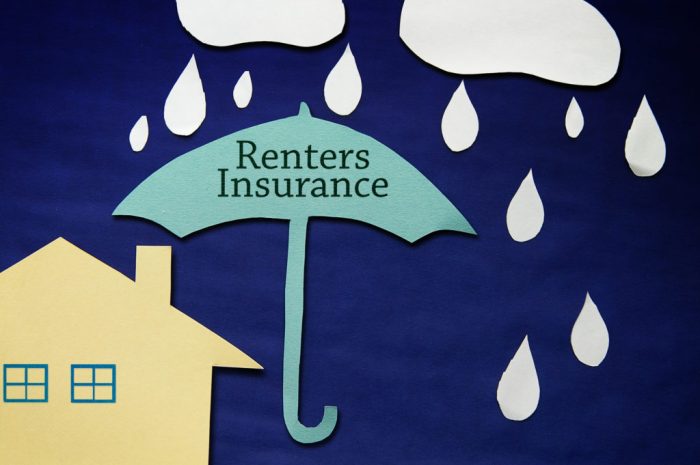Finding the right apartments insurance can feel overwhelming. This guide navigates the complexities of renter’s insurance, landlord insurance, and the crucial decisions involved in protecting your belongings and liability. We’ll explore coverage options, cost factors, claim procedures, and how to find the best policy for your needs, ensuring you’re well-prepared for unforeseen circumstances.
Understanding your insurance needs is paramount to peace of mind. Whether you’re a seasoned renter or just starting out, this comprehensive guide will equip you with the knowledge to make informed decisions about protecting your apartment and personal possessions. We’ll cover everything from selecting the right coverage level to navigating the claims process, empowering you to secure your future.
Understanding Policy Exclusions and Limitations

Apartment insurance, while offering valuable protection, isn’t a blanket guarantee against all potential losses. Understanding the policy’s exclusions and limitations is crucial to avoid unexpected financial burdens in the event of a claim. This section clarifies common exclusions, the consequences of non-disclosure, and the importance of thoroughly reviewing your policy documents.
Common Policy Exclusions
Most apartment insurance policies exclude certain types of events or losses. Familiarizing yourself with these exclusions will help you manage your risks effectively and ensure you have adequate coverage for your specific needs. Failing to understand these exclusions can lead to significant financial losses if an unforeseen event occurs.
| Exclusion Category | Specific Examples | Limitations | Implications |
|---|---|---|---|
| Natural Disasters | Earthquakes, floods, hurricanes | Coverage may be available through separate endorsements or riders, often at an additional cost. | Significant financial responsibility if these events damage your belongings. |
| Intentional Acts | Damage caused deliberately by the policyholder or a resident. | No coverage for damage resulting from intentional actions. | Complete responsibility for repair or replacement costs. |
| Gradual Damage | Wear and tear, rust, mold (unless caused by a covered event) | These are considered normal deterioration and are not covered. | Regular maintenance is crucial to mitigate these risks. |
| Certain Valuables | High-value jewelry, art, collectibles (unless specifically scheduled) | Limited coverage or no coverage unless additional coverage is purchased. | Consider separate insurance for high-value items. |
Consequences of Non-Disclosure
Failing to disclose relevant information during the application process can have serious consequences. Insurance companies rely on accurate information to assess risk and determine appropriate premiums. Omitting details about previous claims, existing conditions in your apartment, or other relevant factors can lead to policy denial or even voiding the policy if a claim is filed. This can leave you financially vulnerable. For example, if you fail to disclose a history of water damage in your apartment and subsequently experience another water damage incident, your claim might be denied.
Importance of Reviewing Policy Terms
Before signing any insurance policy, it’s crucial to carefully read and understand the terms and conditions. This includes reviewing the policy exclusions, coverage limits, and the claims process. Don’t hesitate to contact your insurance provider to clarify any uncertainties or seek clarification on specific aspects of the policy. A thorough understanding of your policy protects your interests and prevents unexpected surprises when you need to file a claim. Understanding the fine print ensures you are adequately protected and aware of your responsibilities.
Finding and Choosing an Apartment Insurance Provider
Securing the right apartment insurance is crucial for protecting your belongings and providing financial security in case of unforeseen events. Finding the best provider involves careful research and comparison, ensuring you choose a policy that meets your specific needs and budget. This section will guide you through the process of finding and selecting a suitable apartment insurance provider.
Methods for Finding Apartment Insurance Providers
Several avenues exist for locating apartment insurance providers. Online search engines offer a broad range of options, allowing you to compare policies and prices from numerous companies simultaneously. This method provides convenience and access to a wide selection, but it requires careful evaluation of each provider’s reputation and policy details. Alternatively, independent insurance brokers can act as intermediaries, comparing policies from various insurers to find the best fit for your individual circumstances. Brokers offer personalized advice and can navigate the complexities of insurance policies, saving you time and effort. Directly contacting insurance companies is another approach; however, this method may involve contacting multiple companies individually, potentially increasing the time investment.
Choosing a Reputable and Reliable Insurance Provider
Selecting a reputable insurance provider is paramount. Factors to consider include the company’s financial stability, as indicated by ratings from organizations like A.M. Best. A strong financial rating suggests a lower risk of the insurer’s inability to pay claims. Reading online reviews and checking for complaints filed with regulatory bodies provides insight into customer experiences and the company’s responsiveness to claims. Ensuring the provider is licensed and authorized to operate in your area is essential for legal compliance and protection. Finally, look for a company with a proven track record of fair claims handling and positive customer service.
Factors to Consider When Comparing Insurance Quotes
Comparing insurance quotes requires careful attention to detail. The premium amount, while a key factor, should not be the sole determinant. Consider the coverage limits offered for personal belongings, liability protection, and additional living expenses. Understanding the policy’s deductible amount, the amount you pay out-of-pocket before the insurance coverage begins, is crucial. Examine the policy’s exclusions and limitations, as previously discussed, to understand what is and isn’t covered. Finally, compare the terms and conditions of different policies, including cancellation policies and renewal options.
Questions to Ask Potential Insurance Providers
Before purchasing a policy, it is advisable to gather specific information. Information regarding the claims process, including the required documentation and timeline for settlement, should be obtained. Details on the company’s customer service support, including contact methods and response times, should be clarified. Inquiries about discounts and potential savings opportunities, such as bundling with other insurance policies, are beneficial. Finally, obtaining a clear explanation of the policy’s terms and conditions, ensuring full comprehension before commitment, is vital.
Illustrative Scenarios

Understanding how renter’s insurance works is best illustrated through real-world examples. The following scenarios demonstrate how different types of incidents can be covered, highlighting the claim process and the importance of having adequate coverage.
Fire Damage in an Apartment Building
A fire broke out in a neighboring apartment, causing significant damage to your unit. Flames damaged your living room furniture (sofa, armchair, coffee table), scorched your curtains and rug, and caused smoke damage to your clothing and electronics (laptop, television). Water damage from the firefighters’ hoses further affected your belongings. Your renter’s insurance policy, with a coverage amount of $20,000, would cover the cost of replacing or repairing these items, minus your deductible (e.g., $500). The claim process would involve filing a report with your insurance company, providing detailed descriptions and photos of the damaged property, and potentially providing receipts for the damaged items if available. An adjuster would then assess the damage and determine the appropriate payout. The insurance company might also cover temporary living expenses if your apartment becomes uninhabitable.
Theft of Personal Belongings
While you were away on vacation, your apartment was burglarized. Thieves stole your laptop computer, a high-end camera, jewelry valued at $3,000, and several other items totaling approximately $5,000. Your renter’s insurance policy, which includes coverage for theft, would cover the replacement cost of these items, subject to your policy’s limits and deductible. The claim process would begin by reporting the theft to the police and obtaining a police report. This report, along with a detailed inventory of the stolen items and, ideally, any purchase receipts or appraisals, would be submitted to your insurance company. The company would then investigate the claim and, upon verification, provide compensation for the losses, up to the policy’s coverage limits.
Water Damage from a Neighbor’s Apartment
A pipe burst in your upstairs neighbor’s apartment, resulting in significant water damage to your ceiling, walls, and personal belongings. Water seeped into your bedroom, ruining your mattress, bedding, and some clothing. Your renter’s insurance policy covers water damage caused by a covered peril, such as a burst pipe in a neighbor’s apartment. You would file a claim with your insurance company, providing photos and descriptions of the damage. An adjuster would inspect the damage and determine the extent of coverage. The insurance company would then cover the cost of repairing or replacing the damaged items and any necessary cleanup and restoration services. If the damage is extensive and makes your apartment uninhabitable, temporary housing expenses may also be covered.
Ending Remarks

Securing adequate apartments insurance is a vital step in responsible renting. By understanding the different coverage options, factors affecting costs, and the claims process, you can confidently protect your assets and minimize financial risks. Remember to carefully review policy terms, compare quotes from reputable providers, and ask questions to ensure you have the right coverage for your unique circumstances. Protecting your investment in your apartment and personal belongings is an investment in your peace of mind.
Question Bank
What is the difference between renter’s insurance and landlord insurance?
Renter’s insurance protects your personal belongings and liability, while landlord insurance covers the building structure and liability for the landlord.
Can I get apartments insurance if I have a poor credit score?
Yes, but it may result in higher premiums. Some insurers consider credit history when assessing risk.
What happens if I don’t report a claim promptly?
Delayed reporting can impact your claim’s approval. Most policies have deadlines for reporting incidents.
Are there any discounts available for apartments insurance?
Yes, some insurers offer discounts for bundling policies, having security systems, or being a long-term customer.
What if my landlord requires a certain level of liability coverage?
Ensure your policy meets your landlord’s requirements. Your lease agreement should specify the minimum coverage amounts.